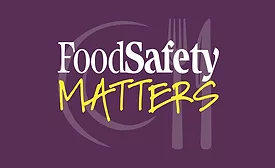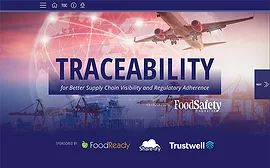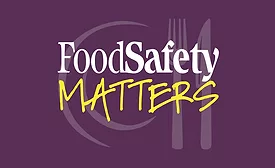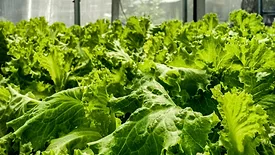Home » Keywords: » supply chain
Items Tagged with 'supply chain '
ARTICLES
BIZTRACKS
Industry Shares Best Practices for Supply Chain Visibility at GS1 US Summit
April 6, 2023
EVENTS
Webinar
12/11/25 to 12/11/26
Contact: Vania Halabou
How to Develop and Implement an Effective Food Defense Strategy
Never miss the latest news and trends driving the food safety industry
Newsletters | Website | eMagazine
JOIN TODAY!Copyright ©2026. All Rights Reserved BNP Media.
Design, CMS, Hosting & Web Development :: ePublishing











